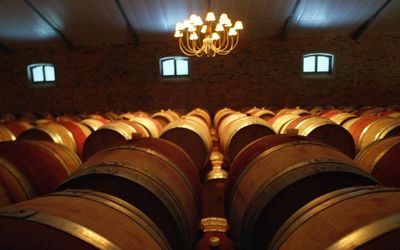WHOLESALE wine producer Douglas Green Bellingham (DGB), which exports South African wine to more than 70 countries, is installing a solar plant that will take its largest production plant off-grid.
Installing an 800kW photovoltaic solar power plant at its Wellington production facility would reduce electricity costs, stabilise production and improve marketability, DGB said.
Also, DGB will be able to sell back to the Drakenstein municipality, which includes Wellington, any excess power. This is rare in SA.
DGB is to officially launch this project on Tuesday. It is expected that the approximately 2,600 photovoltaic solar panels will be installed on the roof of the Wellington production facility by March. The facility is DGB’s largest "by far", said production director Ree du Toit.
The Wellington plant produces between 2.5-million and 3-million litres of wine on a good month, Ms du Toit said.
There are two other production plants, at Boschendal in Franschhoek and at Franschhoek Cellars.
DGB is one of SA’s largest wine producers and owns the Boschendal, Bellingham, Franschhoek Cellar, Douglas Green, Brampton and Wellington wineries.
It was hard to put a finger on the value of sustainability measures in some markets, said Ms du Toit, but many international markets, especially the UK, Scandinavia and parts of Europe, placed high value on wines produced in a sustainable manner.
The solar plant, to be installed by Terra Firma Solutions, is expected to produce more than 1.25-million kilowatt hours (kWh) in its first year of full operation, with an expected average of 160,000kWh in sunny months and 50,000kWh in the heart of winter. The Western Cape is a winter rainfall region.
"The 25-year life span of the project will assist in protecting DGB from significant increases in electricity prices from our municipality," the wine producer said in a fact sheet.
"Power prices are set to rocket — apart from the increases in the past few years, Eskom has just made a request for a power price increase which could see prices increasing by 17% early next year."
SA’s wholesale electricity price has at least doubled in the last seven years.
Wines of SA, a not-for-profit industry organisation that promotes the export of all South African wine in key international markets, has a wide focus on sustainability and conservation of the Western Cape’s natural environment.
DGB is expecting to save about 1,265-tonnes of carbon-dioxide equivalent a year through using solar power. This, according to DGB’s calculations, is the same as saving the emissions that would be released by driving a small car from Cape Town to Johannesburg 5,550 times a year.
Carbon dioxide is the most common greenhouse gas — gas scientifically linked to climate change — and is used as a catch-all for the other greenhouse gases. Carbon dioxide equivalency is a quantity that describes, for a given mixture and quantity of greenhouse gas, the quantity of carbon dioxide that would have the same global warming potential, when measured over a specified time (generally, 100 years).
DGB first measured its carbon footprint — a measure of how much carbon dioxide equivalent is released in an average year — at the end of the 2008-09 financial year, said Ms du Toit.
Six assessments later the footprint had been reduced by 12.5%.
A seventh assessment is under way.
The company won the 2011 UK Drinks Business Green Award for supply chain and logistics. Over the past three years it has reduced glass use by 3.25-million kilograms.
The company has also reduced the board grade of packaging cartons, simplified the printing on cartons, thereby using less ink, and removed lacquer coats from cartons where possible. Customers were being persuaded to ship wines more sustainably too.
Total water consumption is down 18%, and energy use down 22% over the last three years.





















Change: -0.47%
Change: -0.57%
Change: -1.76%
Change: -0.34%
Change: 0.02%
Data supplied by Profile Data
Change: -1.49%
Change: 0.08%
Change: -0.47%
Change: 0.00%
Change: -0.04%
Data supplied by Profile Data
Change: -0.34%
Change: 0.03%
Change: -0.10%
Change: -0.22%
Change: -0.81%
Data supplied by Profile Data
Change: -0.28%
Change: -1.15%
Change: -0.07%
Change: -1.21%
Change: -0.22%
Data supplied by Profile Data